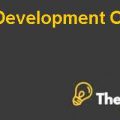
AGENCY THEORY Case Solution
ESSAY BASED ON AGENCY THEORY
The early basic agency archetype was developed in the literature of economics during 1960s and 1970s to determine the most favorable amount of the risk-sharing among individuals. (Namazi, 2013)
In the concept of Agency Theory, one party determines the work and is referred to as the Principle (Boss), while another party does the work and is referred to as the Agent (Employee). Whereas in primitive form, it is considered that the agency theory relates to the circumstances in which the agents are engaged by the principle to work on his/her behalf upon a determined fee schedule. Since, both agents and principal are assumed to maximize the utility and therefore, both are motivated by financial and non-financial items, incentives. Thus, it is expected that the incentives problem may arise, particularly in the environment of uncertainty and where information is not equally disseminated.(Namazi, 2013)
Moreover, Agency Theory assumes that both the agents and principal are motivated by self-interest. Thus, agents are likely to deviate from the common organizational goals and would pursue towards the self-interested objectives and goals. Therefore, under the agency problem, the objective function of the principal and the agent may mismatch, which would cause the agent to take certain actions that will likely to jeopardize the benefits of principal. Research on the agency theory shows that the agency loss would be minimized when the two statements are true; first is that the principal and the agent share the common goal and interest, this means that both the parties desire the same results, and the second is that the principal is aware about the consequences of the agent’s actions. Therefore, it is expected that if either of these statements are false,then agency loss would arises.(Gore, 2015)
TYPES OF AGENCY PROBLEM
Agency problem has been categorized in the following ways:(Boshkoska, 2015)
Managers vs. Owners: In the case of joint stock companies where the ownership is usually separated from the management, due to this, the ownership remains unable to take part in the management areas of the organization. Therefore, professional managers become responsible to serve and handle the management of the organization. However, managers sometimes give priority to their own goals and objectives without consideration of the stock holder’s interests and benefits.This causes conflict of interest between the managers and the owners.(Boshkoska, 2015)
Senior Manager vs. Junior Management: The senior management involved in the policy making, which are then implemented by the junior management. Sometimes in the organizations, policies are set by the junior management and as a result, conflicts arise between the management. (Abdullah Al Mamun, 2013)
Creditors vs. Owners: Creditors always willing to have their payment on time from principal and owners of the firm. Whereas, if the company haven’t earned a sufficient amount of profit,then the owners would not be willing to pay the creditor’s claim from their personal income. As a result of which, the conflict arises between both the parties.(Abdullah Al Mamun, 2013)
Owners vs. Other parties: Owners have the objective to maximize their wealth; whereas; employees, suppliers, retailers, and other parties associated with the firm want to have high salaries, increments, timely payment of claims etc. (Abdullah Al Mamun, 2013)..................
This is just a sample partial case solution. Please place the order on the website to order your own originally done case solution.







